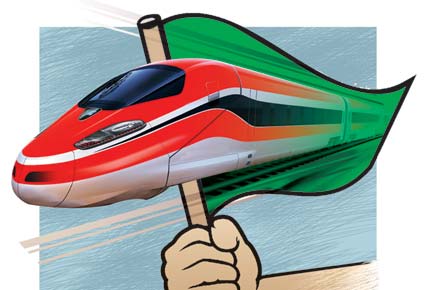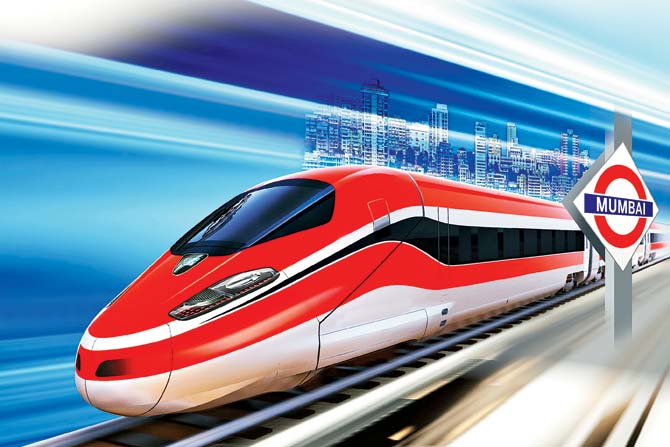The Maharashtra government has agreed to allot 0.9 hectares of land at Bandra-Kurla Complex (BKC) here for a station for the proposed Mumbai-Ahmedabad bullet train with certain conditions


Representational Image
ADVERTISEMENT
The Maharashtra government has agreed to allot 0.9 hectares of land at Bandra-Kurla Complex (BKC) here for a station for the proposed Mumbai-Ahmedabad bullet train with certain conditions.
Prime Minister Narendra Modi and his Japanese counterpart Shinzo Abe would lay the foundation stone of India's first bullet train project in Ahmedabad tomorrow. A Government Resolution (GR) issued by the Maharashtra Home Department on September 12 said the state has set a condition that the cost of the land at BKC should be considered a part of Maharashtra's preliminary share of Rs 125 crore for the project.
Also read: Bullet train: High-speed travel between Ahmedabad and Mumbai by 2022
The Maharashtra government also wants the Japan International Cooperation Agency (JAICA) to fund the Mumbai-Nagpur bullet train project on the same terms as the Mumbai-Ahmedabad project, an official in the Chief Minister's Office said here. The GR said that construction of railway station for the bullet train at BKC should not adversely affect construction of the proposed International Financial Services Center (IFSC) in the area and its financial viability.
Further, the state wants the Centre and Railways to ensure that entry and exit of the bullet train station are within the 0.9 hectares plot. The GR also said that the railway ministry should first examine the suitability of an alternative site recommended by the state at BKC. Only if that site is found unsuitable, then the present 0.9-hectare plot should be considered, it said. The government has already approved allocation of 50.31 hectares of land at BKC for the IFSC.
Also Read: Bullet train services likely to start on Aug 15, 2022, says official
Of the 508-km route and 12 stations of the bullet train, 120 km and four stations will fall in Maharashtra. It is expected to cut the journey time from the current six hours to two hours.
 Subscribe today by clicking the link and stay updated with the latest news!" Click here!
Subscribe today by clicking the link and stay updated with the latest news!" Click here!






